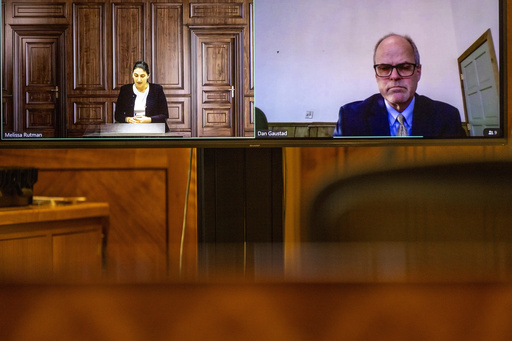BISMARCK, N.D. — North Dakota’s near-total ban on abortions will not be enforced while the state pursues an appeal against a recent court ruling that deemed the law unconstitutional.
District Judge Bruce Romanick’s ruling from September remains intact during the state’s appeal to the North Dakota Supreme Court.
Since the closure of the Red River Women’s Clinic, which relocated from Fargo to Moorhead, Minnesota, in 2022, no abortion clinics have operated within North Dakota’s boundaries. This move followed the U.S. Supreme Court’s decision to overturn Roe v. Wade, which activated a state law that would effectively prohibit most abortions. The clinic intervened legally to halt the enforcement of this law just as it was set to take effect.
Under North Dakota’s abortion ban, performing an abortion was classified as a felony, with limited exceptions only in cases of severe health risks to the mother or to prevent death. For instances of rape or incest, abortions were permitted only up to six weeks of pregnancy, a timeframe before many individuals confirm their pregnancies.
Judge Romanick emphasized the unconstitutionality of the law under the state’s constitution, stating, “It would be non-sensical for this Court to keep a law it has found to be unconstitutional in effect pending appeal.”
This latest ruling is noteworthy as it alleviates concerns for individuals facing serious pregnancy-related complications who seek medical attention at hospitals, as they can receive necessary treatment without fear of delays caused by the law, according to Meetra Mehdizadeh, a staff attorney at the Center for Reproductive Rights representing the plaintiffs.
“It just makes pregnancy safer for everyone to know that if that does happen, they will have the option of being able to seek that care in-state and won’t have to worry that their doctors are going to feel forced to delay care,” Mehdizadeh stated.
Last month, the judge described North Dakota’s abortion ban as unconstitutionally vague, affirming that women in the state possess a fundamental right to have an abortion before a fetus reaches viability.
Although the state intends to challenge this September ruling, inquiries were made to North Dakota Attorney General Drew Wrigley regarding whether an appeal against Romanick’s most recent ruling would also be forthcoming.
During a court session on Thursday morning, legal representatives for both the state and abortion rights groups, including the women’s clinic and various medical professionals, presented their arguments.
Special Assistant Attorney General Dan Gaustad expressed concerns that the prior ruling creates uncertainty for numerous state attorneys and other district court judges not involved in the case.
“Let’s let the North Dakota Supreme Court decide this issue and let the law remain in place like it has been,” Gaustad asserted.
Countering this, Melissa Rutman, an attorney representing the plaintiffs, argued that the state had failed to fulfill the necessary conditions for a stay against the ruling that invalidated the abortion ban.
“The court already concluded that there is confusion if the law is in effect because as a matter of law, the law is too vague on its face to afford doctors due process rights, and physicians are forced to guess whether their medical decisions will subject them to criminal liability,” Rutman said.
Judge Romanick further clarified that his previous orders and judgments were straightforward and not ambiguous.


